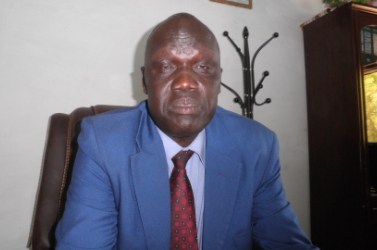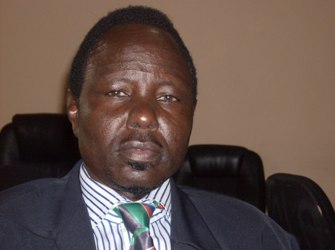Jonglei passes SSP264 million budget
October 11,2012 (BOR) – Jonglei state parliament has passed a SSP264 million (US$60 million) budget for the 2012-2013 period after three months of delays.

The 2011-2012 budget passed in June 2011 was SSP194 million, (US$44 million); made up of SSP28 million (US$6 million) in local revenues and a national grant.
The state revenue authority’s failure to collect the entire budget resulted in a suspension of housing allowances for civil servants.
The deficit in the budget also led to a reduction of the state work force, leading to 19,000 employees being laid off by the ministry of labour and public service in the same year.
In 2012 the state work force was reduced to 16,460 employees.
Chuol explained one of the factors leading to the increase in the state budget this year was the increase in salaries for organised forces, including the police service, prison service, fire brigade and those working in the wildlife sector.
In the 2011 budget, SSP28 million (US$6 million) was to be collected locally, but “the state had problems with insecurity and a lack of roads. This made the counties unable to collect the proposed money; only SSP8 million (US$2 million) was collected, creating a big gap,” said Chuol.
Minister of finance in Jonglei, Aquila Maluth said they are be committed to collecting local revenues effectively to ensure there is not a budget deficit this year.
Maluth said the closure of the South Sudan-Sudan border had a dramatic affect on their budget as taxes collected on levied goods coming Sudan via the river Nile stopped. The border was reopened on 7 October.
Maluth also said that he has written to the Governor of the Central Bank of Sudan “about the two counties of Akobo and Pochalla that are actually dead because they do not have good security, roads or trade and the people who are close to them in Ethiopia are refusing their South Sudanese Pounds.”

Chairperson of the Jonglei Youth Union, Ayar Monywach said that the budget does not favor youth in the state in areas of youth employment and facilitation of youth activities and that this “will increase the number of jobless students who graduate from universities.”
According to Monywach, the increase in the number of jobless youths will lead to an increase of crimes in the state.
Secretary general of the Youth Union, Samuel Ayuen Garang, said the budget represented the marginalisation of youth in the state.
He said Jonglei will soon be receiving 400 graduates from various universities in South Sudan and elsewhere in East Africa “and if there is no employment, they will be redundant and this will force them to do evil things”.
(ST)
